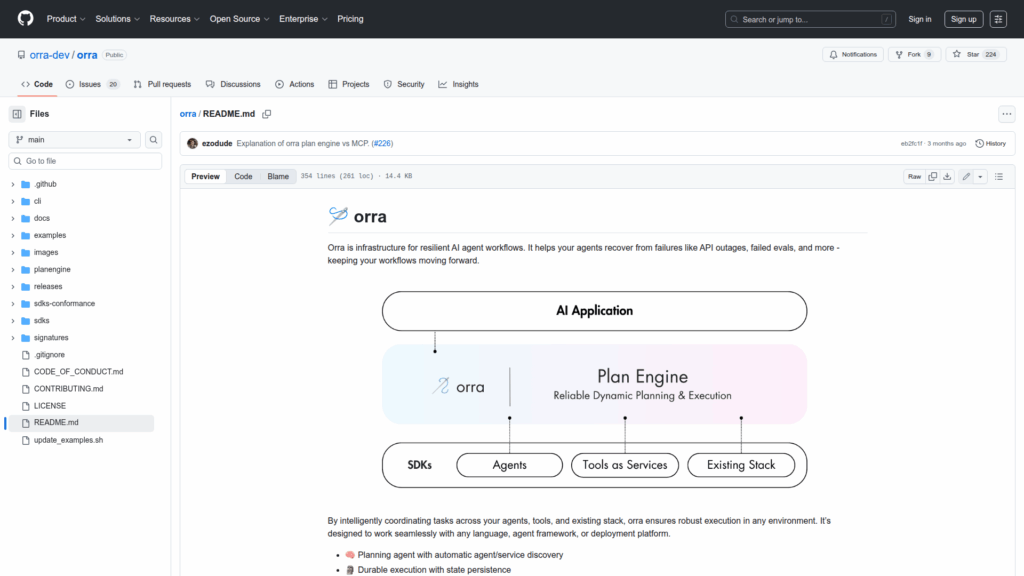Basic Information
Orra is infrastructure for resilient AI agent workflows and a Plan Engine that generates, validates, and executes multi-agent plans. It coordinates tasks across agents, tools, and existing systems to maintain progress through failures such as API outages or failed evaluations. The repository provides a Plan Engine service with a CLI, language SDK examples for Python and JavaScript, Docker deployment and compose instructions, and guidance for self-hosted or cloud model endpoints. It requires OpenAI-compatible reasoning and embedding model endpoints and includes model configuration documentation. Orra persists orchestration state for durable execution, exposes webhooks and audit logs for observability, and is designed to integrate with various agent frameworks or deployment platforms without framework-specific changes.








